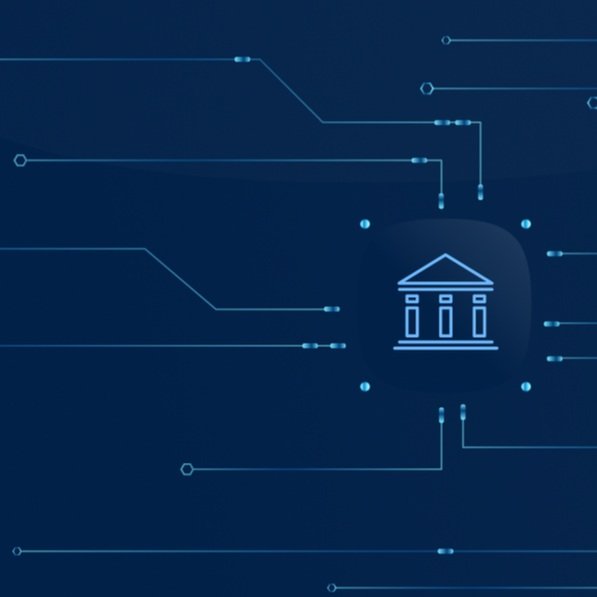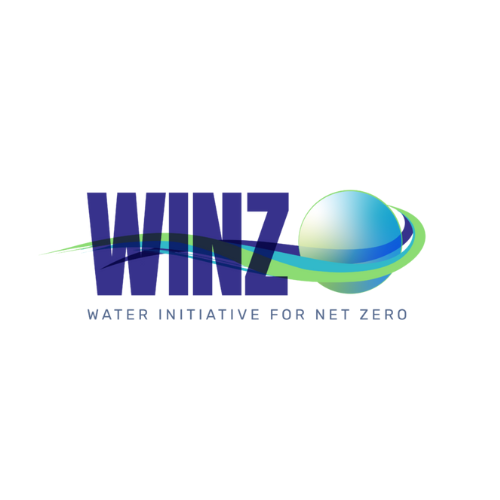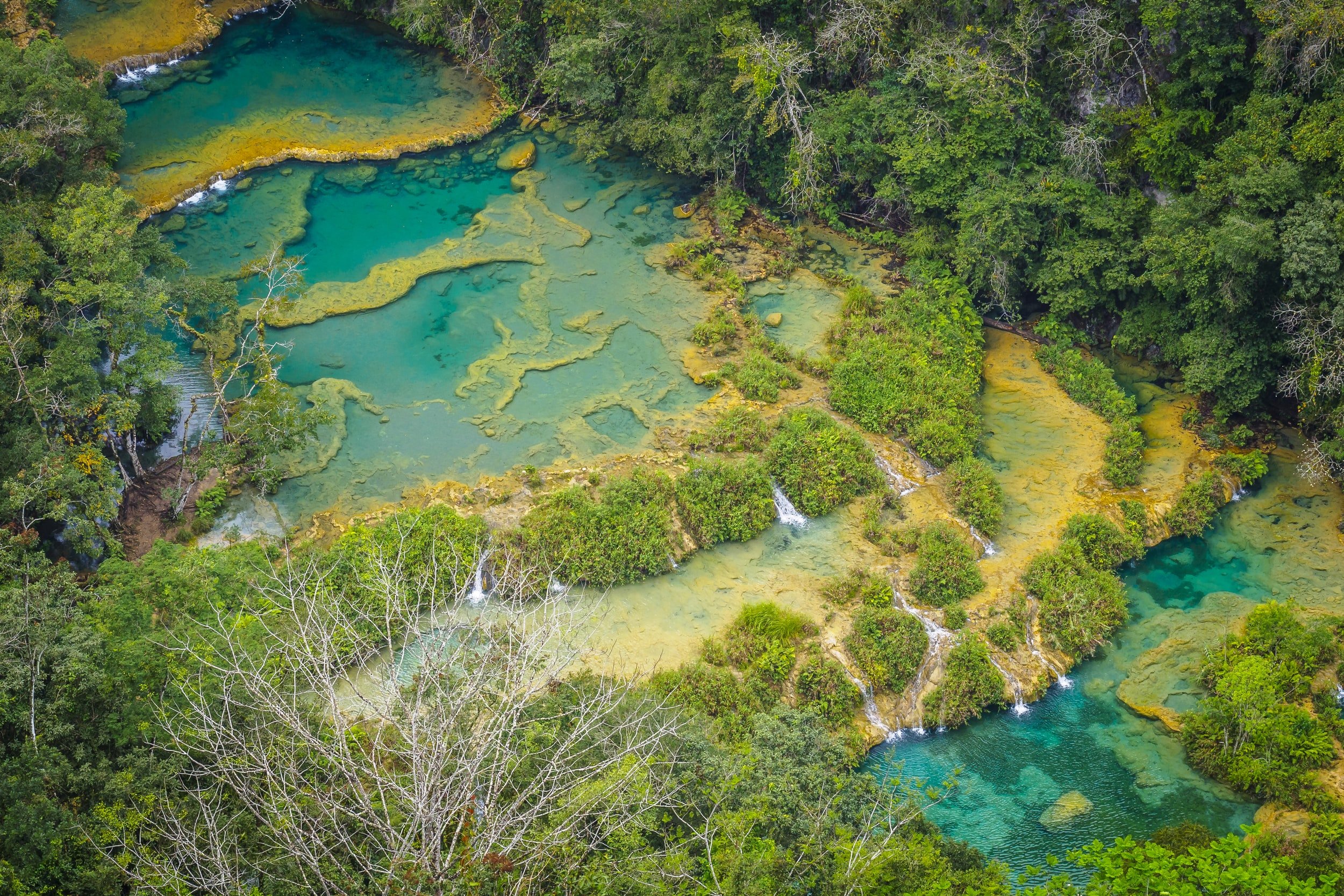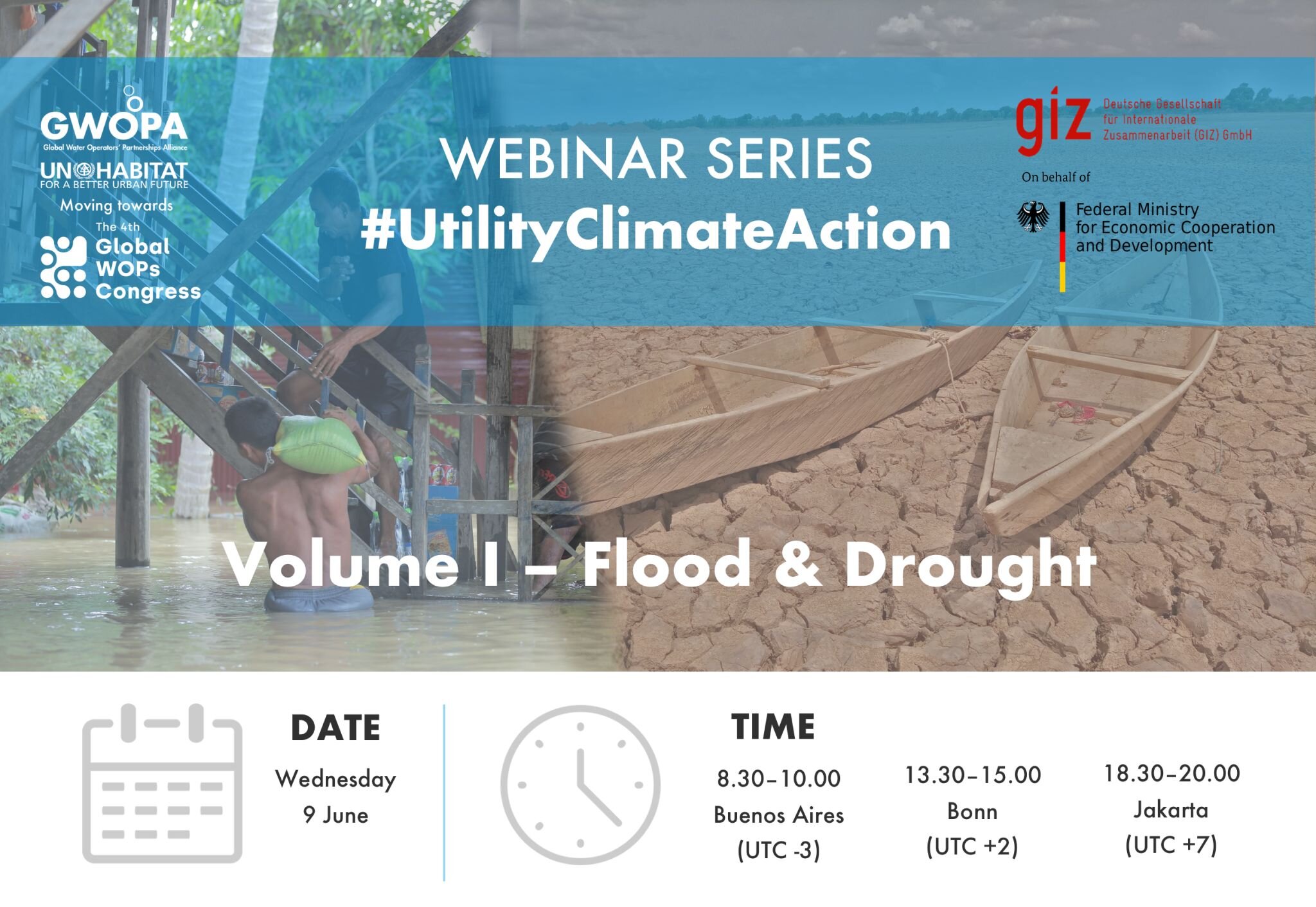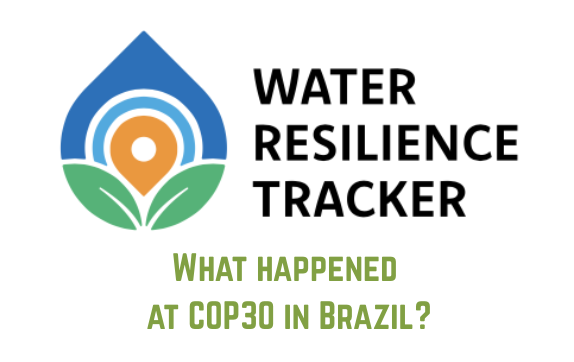
Webinar: What happened at COP30 in Brazil?
Progress toward a climate-water resilient future
Date: 03 December 2025
Time: 2PM-3.30PM GMT
(9AM EST, Washington DC / 11AM Brazil / 3PM CET Central Europe & West Africa / 4PM Malawi & Egypt / 7.30PM Sri Lanka / 7.45PM Nepal)
The Water Resilience Tracker team returns from the world’s largest annual climate change conference with news to share.
Join us and special guests on 3 December for an online discussion unpacking what happened at COP30, what was at stake for climate negotiations, and how water resilience factored into the agenda.





